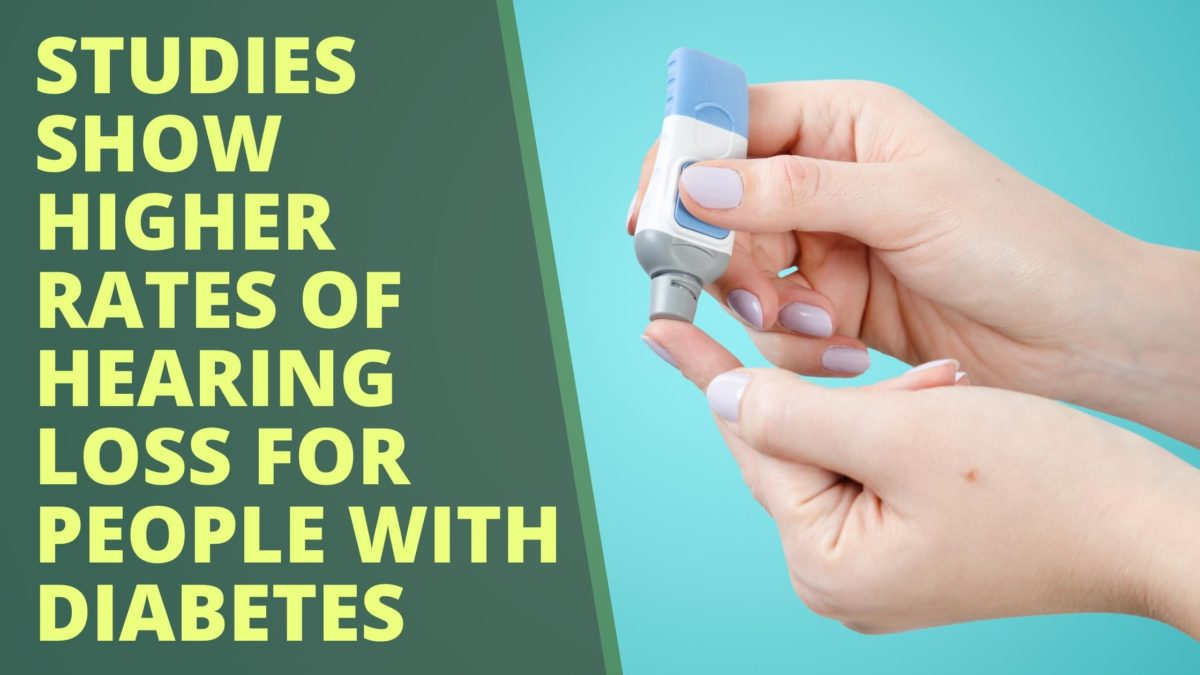Diabetes is a disease that affects approximately 34.2 million people of all ages, equaling 10.5% of the US population alone. This is a serious condition that can develop into diverse health complications, such as heart disease, circulation issues, nerve damage, kidney disease, and even vision problems. However, one aspect of diabetes rarely focused on is its effects on hearing. A recent study found that hearing loss is twice as common in people with diabetes as it is in those who don’t have the disease.
Understanding Diabetes
Diabetes is a chronic disease that affects how your body uses blood sugar, also known as glucose. Glucose provides energy for the cells of your muscles and tissues, as well as providing your brain’s main source of fuel, making it essential for body function. Diabetes develops when the pancreas is no longer able to make insulin or properly process insulin, a pancreatic hormone that aids in the conversion of glucose from food into energy. This can cause spikes in glucose in the blood which can cause cell damage as well as organ and tissue failure. There are four types of diabetes:
- Gestational Diabetes: which occurs during pregnancy,
- Type One: is classified as an autoimmune reaction, occurring most commonly in adolescence and attacks the cells of the pancreas.
- Type Two: The most common type of diabetes is caused by diet and lifestyle choices. As it develops it becomes increasingly difficult for the body to process insulin, creating dangerously high levels of glucose in the blood.
- Prediabetes: This occurs when blood sugar levels are higher than normal, but not high enough yet to be considered type 2 diabetes. This condition affects approximately 88 million people in the US or more than 1 in 3.
Understanding the Link Between Hearing Loss and Diabetes
While researchers are still trying to solidify the connection between diabetes and hearing loss there is overwhelming evidence that the two are common together. For instance, patients with prediabetes appear to lose their hearing 30 percent earlier than those without the risk of the blood sugar condition. Some of the theories on why the prevalence of hearing loss is so high in diabetes and prediabetes patients include:
- Diabetic neuropathy: This occurs when high levels of glucose in the blood damage nerves. Research suggests that the nerves of the inner ear can be damaged by diabetic neuropathy.
- Damage to blood vessels: Another reasonable theory, revolves around the inner ear’s need for a healthy and oxygenate blood supply. The tiny blood vessels which sustain and feed the inner ear can be damaged or destroyed when glucose levels in the blood become too high. Excessive blood sugar decreases the elasticity of blood vessels, which causes them to narrow, slowing blood flow. When blood flow becomes reduced it puts the body at a higher risk for high blood pressure and damage to small blood vessels in the inner ear.
Sensorineural Hearing Loss
To understand the risk diabetes poses to the ears, it’s important to understand how hearing loss works. The ears are responsible for collecting sound and use tiny cells in the inner ear called stereocilia to send these sounds to the brain to be processed. These tiny hair-like cells are incredibly fragile and can be damaged by a number of factors, including loud sound, exposure to certain chemicals, head trauma and blood supply issues. When the stereocilia become damaged they cannot regenerate, causing permanent hearing loss. This type of hearing damage is referred to as sensorineural and is the most common type of hearing loss.
Preventing Hearing Loss from Diabetes
With this understanding, it is incredibly important to monitor your blood glucose, especially as you grow older. However, you do have the power to keep your blood sugar levels in check. Try limiting the amount of sugar and refined carbohydrates in your diet. These can cause your blood sugar levels to rise, contributing to diabetes. In addition, if you haven’t already, you can quit smoking and avoid excessive alcohol. Drink plenty of water every day and make sure to add at least 30 minutes of cardiovascular exercise to your diet every day to maintain healthy blood circulation.
Treating Hearing Loss
If you have been diagnosed with diabetes or even prediabetes, it’s a good idea to have your hearing tested as well. In the best-case scenario, you don’t have hearing loss, but if you do, it’s important to treat it as soon as possible. Healthy hearing helps you stay connected, stay active, and keep you healthy for years to come. Schedule a hearing test today!

